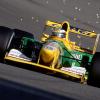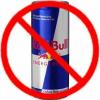
The continual desecration and sanitation of the sport
#101

Posted 31 October 2012 - 06:26
Advertisement
#102

Posted 31 October 2012 - 09:17
#103

Posted 31 October 2012 - 10:12
Why does it matter if the lap times have dropped off? The problem is the perception of speed is dumbed down due to much wider circuit and eagle POV cameras. It doesnt matter if anyone broke 2004 level lap times, if there is no exciting race or qualifying shootout.
It's a combination of all these things. Sure the cars look slower because of the wider circuits, but they are also physically slower on top of that.
And the rule changes that the FIA has planned are going to make them slower again.
#104

Posted 31 October 2012 - 10:16
It's a combination of all these things. Sure the cars look slower because of the wider circuits, but they are also physically slower on top of that.
And the rule changes that the FIA has planned are going to make them slower again.
I always used to joke about how an F1 car would look driving at the speed limit around Albert Park, now it seems one day soon that that speed limit shall indeed be the race pace....
#105

Posted 31 October 2012 - 10:40
The engine formula should simply be that the engines are normally aspirated and of a certain displacement. Then let the teams come up with whichever configuration they like. We used to have V8s, V10s and V12s racing at the same time. They all had different strengths and weaknesses. It's much more interesting.
Exactly. Now where stuck with this bland, sterile control formula where every car is basically exactly the bloody same.....
#106

Posted 31 October 2012 - 11:34
Sure, but it's not sustainable. Unless there'd either be a budget cap or equalising measures in place - neither of which seems to be interesting for the manufacturers. The same old story.The engine formula should simply be that the engines are normally aspirated and of a certain displacement. Then let the teams come up with whichever configuration they like. We used to have V8s, V10s and V12s racing at the same time. They all had different strengths and weaknesses. It's much more interesting.
#107

Posted 31 October 2012 - 11:43
#108

Posted 31 October 2012 - 12:39
I think the tires would be a major factor. The Bridgestones at the height of their development would be the major factor. The power wouldn't matter so much as the cars have become much more drag/downforce efficient, making the amount of downforce being run at least the same, even with the lower power, or possibly even greater.We're talking about boring races though, not qualifying.
The race pace has dropped off the cliff (at some tracks a 2004 car would lap a 2012 car 2 maybe even 3 times covering the same race distance), and it's a huge factor in how unexciting the cars look out on track during a race.
We're watching 2004 Minardi levels of performance from race winners this year.
If it's the case that more downforce = more speed then it's probably masking an even bigger issue in car performance than it appears to be.
The thing is, the racing is better when it is more sophisticated that a series of short sprints punctuated by unnecessary pitstops. Drivers having to conserve resources and make strategic choices creates more unpredictability because things go wrong, or people do things better on a given weekend, and that leads to better racing as there are not continuous differences in performance that leads to parades.
I think the issue of outright pace and visual spectacle are not necessarily the same thing, and should probably be addressed separately. Senna in a 1986 Lotus-Renault would be much slower than Schumacher in a 2004 Ferrari. But wouldn't look less spectacular, and might actually look faster...
#109

Posted 31 October 2012 - 12:44
I like this too..
The engine formula should simply be that the engines are normally aspirated and of a certain displacement. Then let the teams come up with whichever configuration they like. We used to have V8s, V10s and V12s racing at the same time. They all had different strengths and weaknesses. It's much more interesting.
How about giving the teams a set amount of fuel for the race and they can run whatever engine configuration they want?
#110

Posted 31 October 2012 - 12:49
But how do you make it cost viable and enable the non-factory teams to be able to afford the engines? The key problem isn't just making it more exciting. It's making it more exciting and more affordable at the same time. In order for F1 to be more sustainable, both issues need to be addressed.Thanks so much for this thread. The OP expresses what I've been thinking for a long time.
I like this too..
How about giving the teams a set amount of fuel for the race and they can run whatever engine configuration they want?
Edited by juicy sushi, 31 October 2012 - 12:50.
#111

Posted 31 October 2012 - 14:22
However, while I appreciate that the cars are difficult to drive, we need to *see* that they are. What's the point of Martin Brundle waxing lyrical about how beautifully efficient the brakes are on an F1 car as it stops you from 200mph at 4G, if you cannot see the front of the car dive even 1mm.
I would let the tracks be far bumpier, forcing higher ride heights, demanding softer suspension. More street circuits and don't manicure them. Much lower downforce as well.
Such a shame that we have the best quality television pictures ever with F1 HD, but what it has to show is so dull.
#112

Posted 31 October 2012 - 14:43
Let the engine tech run a bit wild and write rules that will force the cars to look better then the current huge, disgusting looking things.
Edited by Lemans, 31 October 2012 - 14:45.
#113

Posted 31 October 2012 - 14:50
We used to have V8s, V10s and V12s racing at the same time. They all had different strengths and weaknesses. It's much more interesting.
But eventually one engine would be found to be the most optimum and everyone would settle on that.
As a side note back in the big spending days, there were plans by some teams to have different types of engines for each type of circuit.
I think it was V8 for twisty tracks like Monaco, V12 for Hockenheim and V10 for in between. Obviously expensive.
#114

Posted 31 October 2012 - 15:09
Not necessarily. Imagine you're a midfield team. You're unlikely to win a race on merit. You could change this by sticking a V12 in. You'd struggle at Monaco but you'd fly at Monza. If you can't beat the top teams by following the same path, try a different path. The top teams have to go for the best compromise in order to challenge for the championship, but there's room for other teams to throw the dice a bit.But eventually one engine would be found to be the most optimum and everyone would settle on that.
As a side note back in the big spending days, there were plans by some teams to have different types of engines for each type of circuit.
I think it was V8 for twisty tracks like Monaco, V12 for Hockenheim and V10 for in between. Obviously expensive.
As for the multiple engine configurations problem - simply state that whatever configuration the team uses at the first race has to be used for the remainder of the championship.
#115

Posted 31 October 2012 - 15:13
We're talking about boring races though, not qualifying.
The race pace has dropped off the cliff (at some tracks a 2004 car would lap a 2012 car 2 maybe even 3 times covering the same race distance), and it's a huge factor in how unexciting the cars look out on track during a race.
We're watching 2004 Minardi levels of performance from race winners this year.
70% of that deficit is just fuel related. Yes, these cars are just slower, by not by a margin as big as race pace suggests.
#116

Posted 31 October 2012 - 17:11
But eventually one engine would be found to be the most optimum and everyone would settle on that.
As a side note back in the big spending days, there were plans by some teams to have different types of engines for each type of circuit.
I think it was V8 for twisty tracks like Monaco, V12 for Hockenheim and V10 for in between. Obviously expensive.
Must admit, I did love the diversity. I remember back in 1994, and we had Ferrari with their V12 screamer, Williams-Renault V10, McLaren-Peugeot V10 and Benetton-Ford V8.....So for example, Ferrari were competitive at Hockenheim and Monza, but struggled in between at the Hungaroring, whereas the Benetton with it's lighter Cosworth DFV V8 excelled at the tight and twisty circuits. To me, that is what F1 is all about, different answers to a technical question. What we have now is 'dull'.
#117

Posted 01 November 2012 - 17:21
The thing is, the racing is better when it is more sophisticated that a series of short sprints punctuated by unnecessary pitstops. Drivers having to conserve resources and make strategic choices creates more unpredictability because things go wrong, or people do things better on a given weekend, and that leads to better racing as there are not continuous differences in performance that leads to parades.
I'm not sure this is whats happening though. I think that what is actually happening is a team of people out back are running huge amounts of data through computers, and then telling drivers what lap times to drive to, on what engine map, in which gear and even how to brake/accelerate out of the corners.
Prost would be pointless in F1 2012.
#118

Posted 01 November 2012 - 17:28
Agreed 100%Must admit, I did love the diversity. I remember back in 1994, and we had Ferrari with their V12 screamer, Williams-Renault V10, McLaren-Peugeot V10 and Benetton-Ford V8.....So for example, Ferrari were competitive at Hockenheim and Monza, but struggled in between at the Hungaroring, whereas the Benetton with it's lighter Cosworth DFV V8 excelled at the tight and twisty circuits. To me, that is what F1 is all about, different answers to a technical question. What we have now is 'dull'.
Shame the FIA can't see the same.
#119

Posted 01 November 2012 - 18:13
Advertisement
#120

Posted 01 November 2012 - 18:20
*teams.Agreed 100%
Shame the FIA can't see the same.
#121

Posted 01 November 2012 - 18:23
Edited by Sakae, 01 November 2012 - 18:24.
#122

Posted 02 November 2012 - 02:14
Edited by juicy sushi, 02 November 2012 - 02:15.
#123

Posted 02 November 2012 - 11:17
Heck, even the race programs are all single-themed everywhere.
#124

Posted 02 November 2012 - 12:25
The people within the circus (teams and journalists) are excited, but the fans are not. The fans want good racing between spectacular cars. How that gets achieved is a good question though, given the level of knowledge within the sport. We,ve gone so very far down the "formula car" path that the unpredicatbility of the past is gone. The teams know too much. The current approchis to engineer in the unpredictaiblity. I'd rahter throw the rule book and associated body of knowledge out the window and start from scratch...You know the racing has been sanitised when people get excited about hotels with twinkly lights, racing during the night, mysterious tire wear and thinking that the more places F1 goes the more "world" goes into the world championship.
Heck, even the race programs are all single-themed everywhere.
#125

Posted 02 November 2012 - 13:42
The teams, engineers, drivers, etc can't "unlearn" things though so the only way to reintroduce some of this unpredictability is via the rules. As I've said in another thread, the teams have near perfected the art of a grand prix weekend now. If you look back at the "golden years" that people often refer to with their rose-tinted glasses, most of the "excitement" was produced by unreliability, team errors, driver mistakes, etc that have all been learnt from since.We,ve gone so very far down the "formula car" path that the unpredicatbility of the past is gone. The teams know too much. The current approchis to engineer in the unpredictaiblity.
#126

Posted 02 November 2012 - 13:45
#127

Posted 02 November 2012 - 14:25
I know, that's why I was suggesting taking the entire rule book, throwing it out and starting over. Give them some very minimal rules, restrict available fuel so that they can't reach unsafe speeds, and then let them have at it. The unpredicatbility will come from the different approaches and divergent development.The teams, engineers, drivers, etc can't "unlearn" things though so the only way to reintroduce some of this unpredictability is via the rules. As I've said in another thread, the teams have near perfected the art of a grand prix weekend now. If you look back at the "golden years" that people often refer to with their rose-tinted glasses, most of the "excitement" was produced by unreliability, team errors, driver mistakes, etc that have all been learnt from since.
#128

Posted 02 November 2012 - 14:36
The teams, engineers, drivers, etc can't "unlearn" things though so the only way to reintroduce some of this unpredictability is via the rules. As I've said in another thread, the teams have near perfected the art of a grand prix weekend now. If you look back at the "golden years" that people often refer to with their rose-tinted glasses, most of the "excitement" was produced by unreliability, team errors, driver mistakes, etc that have all been learnt from since.
This.
In short, the sport of F1 has evolved over time - as does any other sport where a technical parameter is involved. Deal with it or leave.
Or would you rather see tennis players still playing with wooden rackets or high jumpers still using bamboo staves or downhill skiiers still running on wooden planks? All sports involving technical parameters will evolve in time.
If you don't like that, I'd say football is your game of choice. Not much to evolve there. Well we could of course fill the ball with some mysterious gas....
Edited by Suntrek, 02 November 2012 - 14:43.
#129

Posted 02 November 2012 - 14:41
I know, that's why I was suggesting taking the entire rule book, throwing it out and starting over. Give them some very minimal rules, restrict available fuel so that they can't reach unsafe speeds, and then let them have at it. The unpredicatbility will come from the different approaches and divergent development.
Two big problems with this.
1. There will be such large differences between cars that there will be no real competition, it will just be a technological spectacle, not racing.
2. It will cost far too much money.
#130

Posted 02 November 2012 - 15:54
I think the differences will not be as large as many expect. If you give someone a fixed diminsional box and a fixed amount of resources then there is a limit to how much energy you can use and how much downforce you can generate. You can only generate so much downforce before it becomes counterproductive due to too much drag. Which then costs too much of the fixed amount of energy you have to move the car. I think the teams would be fairly close to each other fairly quickly given they could all do that math.Two big problems with this.
1. There will be such large differences between cars that there will be no real competition, it will just be a technological spectacle, not racing.
2. It will cost far too much money.
As for the cost, I think a large part of the cost of F1 comes from the very limited amount of development that is possible. In order to go faster, you need to extract hundredths of a second from very specific parts of the car. That leads to massive expense as you need very expensive specialized equipment to do that research. With a blank canvas, you can do much more to improve the pace of the car, and it's much cheaper to do as you don't need to drop $100 million a year to run a wind tunnel 24/7.
If you look at how fast the Delta Wing project is with very little in the way of funds invested, it shows the way.
#131

Posted 02 November 2012 - 16:11
Two big problems with this.
1. There will be such large differences between cars that there will be no real competition, it will just be a technological spectacle, not racing.
2. It will cost far too much money.
Point 1, there are already large differences between the cars performance wise, indeed most of the teams on grid might just as well not bother, other than for their points related income, given RBR's obviously superior car over even McLaren and Ferrari and had Vettel not suffered some notable retirements he would have been long gone by now. It is has been a technological spectacle for many years now, nobody but nobody can win a GP in the dry without the best or second or near second best car without a great deal of luck and perseverance. Alonso comes very closes to being the exception but he benefitted from RBR's earlier wobbles and McLaren's various inconsistencies and other issues, as indded has Kimi/Lotus.
Point 2, it already costs far too much money for the majority of teams which partly accounts for the widely differing potential of the cars, if not necessarily the drivers. Additionally have you seen the FIA's entrance fee increases from this site's home page thus:
Looking at last year's world championship standings, it means teams will see their entry fee costs rise from last year's standard rate of 309,000 Euro ($397,899) to:
Red Bull (650 points) $4.400 million
McLaren (497 points) $2.985 million
Ferrari (375 points) $2.375 million
Mercedes (165 points) $1.325 million
Lotus (73 points) $865,000
Force India (69 points) $845,000
Sauber (44 points) $720,000
Toro Rosso (41 points) $705,000
Williams (5 points) $525,000
Caterham (0 points) $500,000
HRT (0 points) $500,000
Marussia (0 points) $500,000
The updated Sporting Regulations do not lay out a final entry deadline for teams, but do state that teams must pay the entry fee by November 30.
The FIA's decision to increase entry fees comes amid a push by the governing body to increase the revenue it gets from the sport - with it believed to be chasing a total income of $40 million per season as part of a new commercial structure.
The total revenue generated by the entry fees will be at least $16.3 million, with AUTOSPORT also understanding that the governing body is close to agreeing a $24 million payment from commercial supremo Bernie Ecclestone as part of a Concorde Agreement deal.
These payments, allied to an increase in F1 Super Licence fees for drivers, will help the FIA hit its revenue target.
This will surely signicantly increase costs of everything F1 related over time and given the Europe wide and American economic travails must make serious sponsorship harder to come by and be counter-productive for the less well financed teams.
Shades of national and local government methinks, revenue target indeed.
#132

Posted 02 November 2012 - 16:11
I think the differences will not be as large as many expect. If you give someone a fixed diminsional box and a fixed amount of resources then there is a limit to how much energy you can use and how much downforce you can generate. You can only generate so much downforce before it becomes counterproductive due to too much drag. Which then costs too much of the fixed amount of energy you have to move the car. I think the teams would be fairly close to each other fairly quickly given they could all do that math.
As for the cost, I think a large part of the cost of F1 comes from the very limited amount of development that is possible. In order to go faster, you need to extract hundredths of a second from very specific parts of the car. That leads to massive expense as you need very expensive specialized equipment to do that research. With a blank canvas, you can do much more to improve the pace of the car, and it's much cheaper to do as you don't need to drop $100 million a year to run a wind tunnel 24/7.
If you look at how fast the Delta Wing project is with very little in the way of funds invested, it shows the way.
And exactly how would you go about improving the car from a blank canvas without input from a wind tunnel? (sometimes I feel like Alice in wonderland when browsing this forum...)
Edited by Suntrek, 02 November 2012 - 16:13.
#133

Posted 02 November 2012 - 16:16
I think the differences will not be as large as many expect. If you give someone a fixed diminsional box and a fixed amount of resources then there is a limit to how much energy you can use and how much downforce you can generate. You can only generate so much downforce before it becomes counterproductive due to too much drag. Which then costs too much of the fixed amount of energy you have to move the car. I think the teams would be fairly close to each other fairly quickly given they could all do that math.
As for the cost, I think a large part of the cost of F1 comes from the very limited amount of development that is possible. In order to go faster, you need to extract hundredths of a second from very specific parts of the car. That leads to massive expense as you need very expensive specialized equipment to do that research. With a blank canvas, you can do much more to improve the pace of the car, and it's much cheaper to do as you don't need to drop $100 million a year to run a wind tunnel 24/7.
If you look at how fast the Delta Wing project is with very little in the way of funds invested, it shows the way.
After the first few iterations on top of the blank canvas, the teams will quickly run out of low-hanging fruit and will need to dig deeper to get the last few tenths out of the car. Thus leading to the same high cost/benefit ratio this is meant to solve. As you point out yourself, the teams will quickly converge on similar lap times, so small improvements will become more and more crucial and hence wind tunnels, and the other usual cost sinks will come back in.
#134

Posted 02 November 2012 - 16:35
I didn't say they wouldn't use the wind tunnel. My point was that very large gains would be available for considerably less investment than the current situation.And exactly how would you go about improving the car from a blank canvas without input from a wind tunnel? (sometimes I feel like Alice in wonderland when browsing this forum...)
#135

Posted 02 November 2012 - 16:37
However, convergenece will take time. And if the rules are kept as broad as possible, it will take longer to find convergence. It's not perfect, but in a choice between the blank canvas and wind tunnel masturbation around front wing end plates, I think I'd rather have the blank canvas thank you very much.After the first few iterations on top of the blank canvas, the teams will quickly run out of low-hanging fruit and will need to dig deeper to get the last few tenths out of the car. Thus leading to the same high cost/benefit ratio this is meant to solve. As you point out yourself, the teams will quickly converge on similar lap times, so small improvements will become more and more crucial and hence wind tunnels, and the other usual cost sinks will come back in.
#136

Posted 02 November 2012 - 18:43
I'm not sure how much it would achieve for most areas of the teams. All you'd get would be reliability issues for a few years before it settles down again. Last thing I want to see is unreliability - it isn't entertaining.I know, that's why I was suggesting taking the entire rule book, throwing it out and starting over. Give them some very minimal rules, restrict available fuel so that they can't reach unsafe speeds, and then let them have at it. The unpredicatbility will come from the different approaches and divergent development.
Aerodynamics already evolve quite quickly despite the tight rules (I've got a picture of the Brawn on my wall and even to my untrained eye it looks very basic compared to this year's cars) and any innovation in aerodynamics has to be carefully controlled. Relaxing the aero rules would do little to improve the sport as I'm sure the teams already know aerodynamics inside and out, and would quickly come up with much the same design. Half the challenge at the moment is that the rules are tight.
Only thing I think they could do would be to try and get some engine innovation. Giving them completely free reign would end up similar to the aero. Maybe relax the KERS rules so they can produce as much power as they like for those 6 seconds a lap? Or a fixed fuel as you suggested, and some other basic criteria (V6 turbo, 10l, 20k rpm, etc) with them then allowed to use whatever "green" tech they want to get more power.
#137

Posted 02 November 2012 - 19:14
I didn't say they wouldn't use the wind tunnel. My point was that very large gains would be available for considerably less investment than the current situation.
Is there really anything to back up that assertion though? All I can see is teams spending vast amounts of money - those that can afford it anyway - on whatever is possible with your loosened rules, rather than the smaller, but still large, amount they spend on the more restricted current rules.
#138

Posted 02 November 2012 - 20:49
#139

Posted 02 November 2012 - 23:26
Advertisement
#140

Posted 02 November 2012 - 23:48
#141

Posted 03 November 2012 - 03:38
However, convergenece will take time. And if the rules are kept as broad as possible, it will take longer to find convergence. It's not perfect, but in a choice between the blank canvas and wind tunnel masturbation around front wing end plates, I think I'd rather have the blank canvas thank you very much.
They could just make movable aerodynamics so you'll need to ban active aero. Then you'll have to ban passive aero so they don't make flexible knife shards that snap off at the slightest contact. Then they'll want to put cowls over the wheels for aero so you'll have to ban that for proper open-wheel racing. Then the teams will try to shed drag by laying the driver flat on his back and designing a closed cockpit. You'll have to make regs for the seat/crashbox and cockpit regulations. Then you'll have to ban ground effects which are basically dragless downforce. Then you'll have to ban energy recapture so they don't 'cheat' the fuel limits. Then you'll need to tune the tire/aero regs to stop the cars from turning so quickly that the driver passes out.............
I don't think you have any idea how many rules/homologations there are in F1 or why they exist. If you tried to limit power with fuel, and you discarded the aero/tire rules, the cars would be lethal to drivers (g-forces, crashes), teams (toxic materials), and spectators (airborne vehicles, crash debris).
A freer formula is definitely preferable, but not the way you envision it.
Edited by phoenix101, 03 November 2012 - 03:40.
#142

Posted 03 November 2012 - 08:40
Safety is always a must but recently the new tracks have become stale and boring..
I am starting to lose interest in the racing somewhat as well
#143

Posted 03 November 2012 - 10:16
Tarmac runoff areas should be (in most cases) replaced with gravel traps which would punish driver mistakes without being unsafe. Let's not forget that in the good old days driver fatalities were common. We don't want that!
I was never against curb cutting, but there should be a fine line between beneficial cutting and risking damage/spin/time loss. Different tracks should have different curbs, some more forgiving than the others. It's OK if some curbs can be cut aggressively without much risk, as long as it's not a rule.
Many rules are stupid and should be scrapped. The DRS usable only by the following driver rule is on top of that list. The drivers should be allowed to defend, I always enjoyably that as much as the overtakes themselves. Overtaking thanks to a huge and artificial speed advantage is worthless.
They should focus on fixing the dirty air related problems (by focusing on ground effects, for example), instead of gimmicks. DRS usable in qualifying and perhaps as a limited (e.g. 10 per event) push to pass system in the race could still be used. I also think that the cars need more power (V10 levels would be fine).
The tire rules should be carefully looked at and changed. Ideally the teams should be able to choose any compound available and any strategy they want. But improper tire related rules can change races into processions, as well as lottery. That's why the changes should be carefully implemented.
Reliability rules should be reasonable (i.e. one engine per race weekend + one gearbox per two weekends). Currently there's too much nursing of the cars.
Cost cutting? What BS, given how much the FIA increases the entry fees.
Edited by DrProzac, 03 November 2012 - 10:23.
#144

Posted 04 November 2012 - 15:09
1. Run-off areas. At least three times today we saw crashes because someone went off track and then came back on in a dangerous fashion. With proper penalizing gravel traps drivers would not have been able to come back on; with proper enforcement of penalties drivers would not have come right back on track into the side or the path of another driver. It has become too safe. The tightrope-walkers are now three feet off the ground with a mattress under them.
2. DRS and kers. Vettel has long been criticized for his lack of racing ability. Today helped to prove it; he managed to snick his wing off Senna and even managed to hit someone behind the show car. Yet he still overtook his way to 3rd. Why? Because the ability to overtake is pointless. Just get close behind someone and press a magic button. Voom, there you go. All done for you. This has particularly hindered Hamilton and might have ended Kobayashi's career; both of them are excellent at manufacturing overtaking opportunities but that advantage has been eliminated. One more skill that should be crucial to racing that is no longer necessary.
3. The show car. Hate hate hate hate.
#145

Posted 04 November 2012 - 16:04
IIRC his crucial overtakes today were not DRS assisted. And you sound sour grapes2. DRS and kers. Vettel has long been criticized for his lack of racing ability. Today helped to prove it; he managed to snick his wing off Senna and even managed to hit someone behind the show car. Yet he still overtook his way to 3rd. Why? Because the ability to overtake is pointless. Just get close behind someone and press a magic button. Voom, there you go. All done for you. This has particularly hindered Hamilton and might have ended Kobayashi's career; both of them are excellent at manufacturing overtaking opportunities but that advantage has been eliminated. One more skill that should be crucial to racing that is no longer necessary.



































